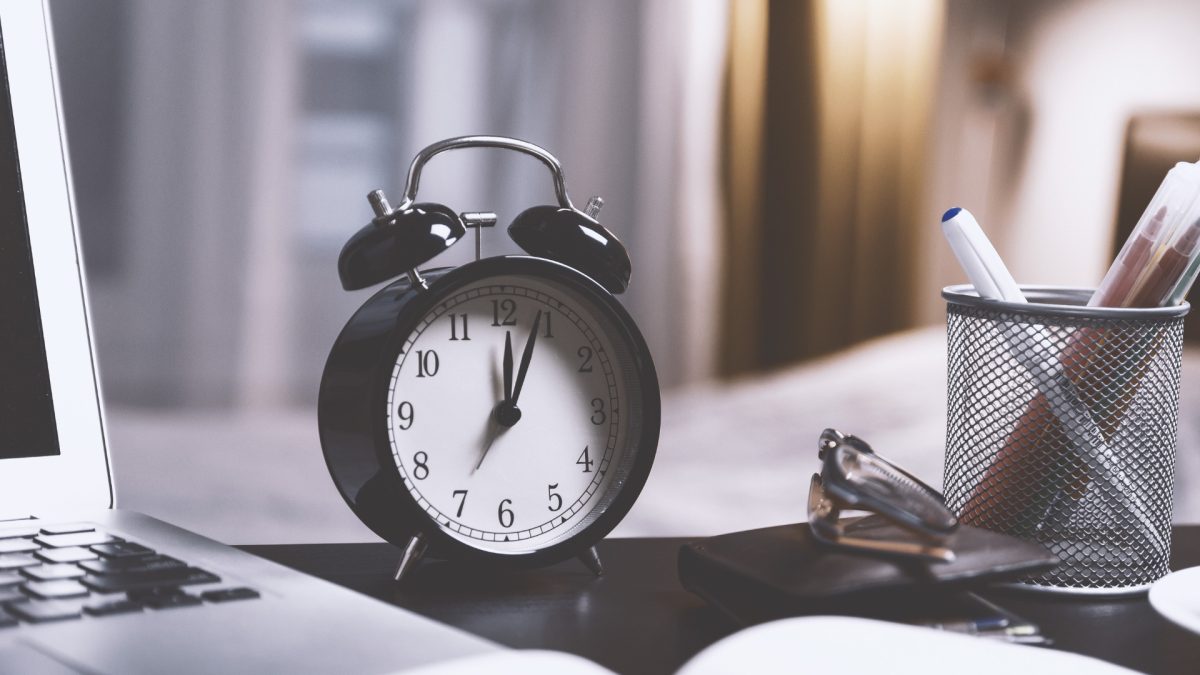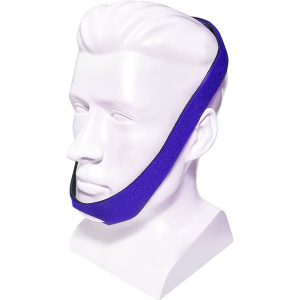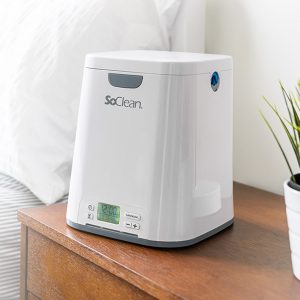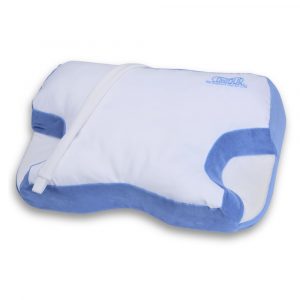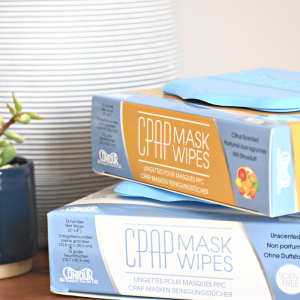Fact Checked
Intus Healthcare’s writers, customer service team, and sleep experts review and ensure this information is accurate.
Last updated on January 30th, 2024 at 05:02 pm
What does the AHI reading mean on a CPAP machine?
Most people first become aware of the term AHI from a sleep test or sleep study. A sleep study can determine if someone has Obstructive Sleep Apnoea (OSA) or not. The AHI number must reach a certain level to confirm Sleep Apnoea. Once your OSA is confirmed, you will receive your report with the recommended treatment options.
AHI stands for Apnoea Hypopnoea Index, which measures the number of apnoeas and hypopnoeas that occur during sleep. To calculate the AHI, the total number of these events is determined and then divided by the hours you sleep.
Apnoea: When your airway is completely blocked, and you stop breathing for a minimum of ten seconds.
Hypopnoea: A period of shallow breathing for ten seconds or longer. Your breathing doesn’t entirely stop; however, your airflow is ≥30% lower than usual. These events are also always associated with a significant drop in oxygen saturation.
Apnoeas and hypopnoeas are very similar and can cause you to wake up suddenly during sleep. You may do this by waking up choking, coughing and gasping.
If you are already a CPAP machine user, you may find your CPAP readings will state your AHI in the sleep data report. Your AHI should remain low, and if it does not, this could be a sign that there is an issue with your equipment set-up, e.g. your mask is leaking air.
What is a normal AHI score?
An AHI score which is less than five is considered normal. However, some patients with severe Sleep Apnoea may be told by their sleep clinic or doctor that higher numbers are acceptable as long as they’re feeling the benefits of the therapy and are experiencing fewer symptoms and their AHI is progressively decreasing.
What AHI is considered severe?
A score which is higher than thirty is considered severe.
Here’s a breakdown of the AHI numbers and the correlating severity of OSA:
- Normal sleep – fewer than five events per hour.
- Mild Sleep Apnoea – 5 to 14.9 events per hour.
- Moderate Sleep Apnoea – 15 to 29.9 events every hour.
- Severe Sleep Apnoea – 30 events and above per hour.
Additional results you may see in your sleep study report.
Additional results you may see in your sleep study
Respiratory Disturbance Index (RDI)
The Respiratory Disturbance Index (RDI) is calculated in a similar manner to the Apnoea Hypopnoea Index (AHI) but with the inclusion of an additional type of respiratory event called Respiratory Effort Related Arousal (RERA). RERA refers to a brief arousal of a few seconds that occurs after partial closure of the airways during sleep. The RDI considers both apnoeas, hypopnoeas, and RERAs to provide a comprehensive assessment of respiratory disturbances during sleep. A normal RDI score is typically five or lower, indicating minimal respiratory disturbances.
Oxygen Desaturation Index (ODI)?
This shows the number of Oxygen desaturations events during an hour of sleep. A desaturation event is determined as a reduction of 4% or more from the baseline level. The more your oxygen level drops, the harder the heart must work. The normal range for the ODI is five or lower.
If you need more help understanding your Sleep Apnoea test results, please feel free to contact us.
What is a good AHI score on CPAP?
Sleep specialists believe the ideal level for CPAP users should be below 5. However, it differs from person to person, and it is normal for the number to fluctuate.
If you use an oral appliance or Mandibular Advancement Device (MAD) for treating your OSA, you may need additional tests from your doctor or sleep clinic to understand the reason for changes in your AHI.
Why is my CPAP AHI so high?
Different factors can affect the severity of someone’s OSA, including:
- Weight & neck circumference – Research has found that men with a neck circumference above 17 inches and women with a neck circumference above 16 inches have a much higher risk of developing Sleep Apnoea(1). Many people with severe cases of OSA are overweight or obese, as excess weight puts pressure on the upper airway.
- Deviated septum – This can cause OSA or intensify the severity due to the deviation blocking the airflow, making it difficult to breathe.
- Smoking – Smokers are at a higher risk of OSA as it causes the upper airway to inflame and causes the airway to relax, leading to blockages.
- Alcohol – Regularly consuming a high amount of alcohol before you sleep disrupts your REM sleep, increasing the risk of OSA by 25%(2).
- Medications and sedatives – Certain medications can aggravate sleep disorders. It is worth checking with your doctor if your medication works alongside your Sleep Apnoea treatment.
- Sleeping position – Depending on the individual, certain sleeping positions can cause more apnoea events throughout the night. Sleeping on your side is generally advised for those with OSA as it comfortably opens the airway.
- Issues with your mask – Issues with your equipment set-up can cause your therapy to be less effective. Read on for ways to lower your AHI.
How do I lower my AHI on CPAP?
If you’re wondering why your AHI number has increased, all of the above factors should be considered to reduce your AHI. If you have addressed these things but are still experiencing high AHI, there are some extra things you can do.
- Ensure your mask fits well and you aren’t experiencing air leaks.
- Replace your mask parts when necessary. Wear and tear will affect the efficiency of the cushion and parts.
- Consider a CPAP pillow to make sleeping on your side easier. Alternatively, you can use multiple pillows to elevate your head to comfortably sleep on your back and keep your airway open.
- If you use a nasal mask and breathe through your mouth, adding a chin strap will prevent leaks and lower your AHI.
- Clean your CPAP equipment regularly to get the most from your equipment, prevent skin irritation and get a good mask seal.
- Make sure your pressure settings are correct; if you have gained or lost weight, you may need to contact your doctor to ensure the settings are appropriate.
- Use sinus and nasal care products if you suffer from congestion. Blocked sinuses can prevent your therapy from working effectively.
- Visit your doctor and ask for your CPAP data to be downloaded to create a plan to optimise your treatment.
- Utilise a CPAP app; different brands have designed apps to help you easily track and troubleshoot what’s impacting your AHI. (ResMed myAir, Sefam Access) Please be aware that most apps are only compatible with the brand’s own equipment.
In-Home Sleep Test
If you have symptoms of OSA, you should consider taking a Sleep Apnoea Test.
If you choose to take a private in-home sleep test, you will receive a detailed sleep report which will reference the AHI that was recorded.
Our Sleep Technicians use the data collected from a sleep study to recommend the most appropriate treatments. If the test is positive, treatment options vary, from CPAP therapy and lifestyle changes to alternatives to CPAP therapy.
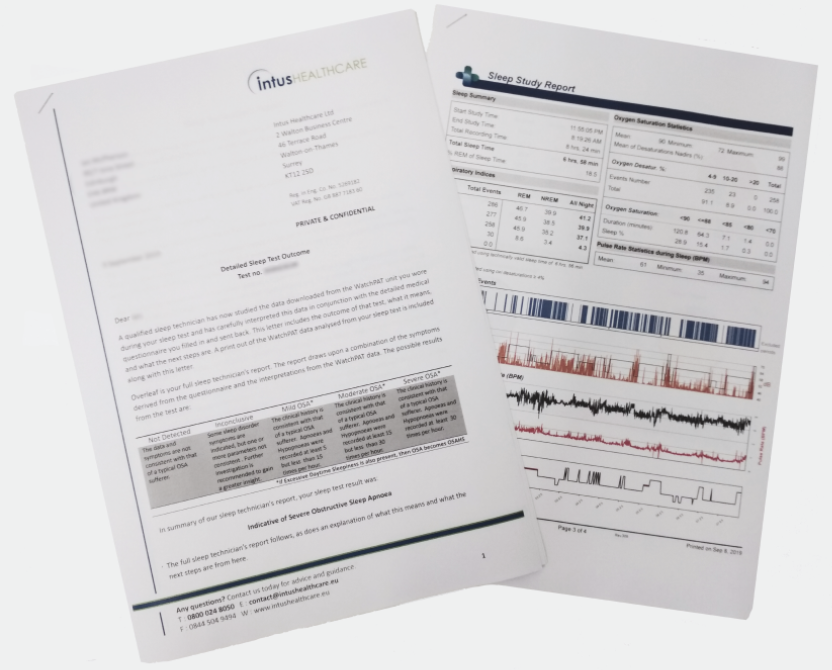
To Summarise
Your AHI indicates the severity of your Sleep Apnoea and how many times your breathing pauses during sleep.
Treating your sleep disorder appropriately will manage and control the number of breathing disruptions during sleep.
If you need any help or advice, do not hesitate to contact us.
REFERENCES
- ResMed (2023) What is the correlation between neck size and sleep apnea?, ResMed. Available at: https://www.resmed.com/en-us/sleep-apnea/sleep-blog/what-is-the-correlation-between-neck-size-and-sleep-apnea/ (Accessed: 07 August 2023).
- Suni, E. (2022) The link between alcohol and sleep apnea, Sleep Foundation. Available at: https://www.sleepfoundation.org/sleep-apnea/alcohol-and-sleep-apnea#:~:text=Observational%20studies%20in%20multiple%20countries,non%2Ddrinkers%20or%20lighter%20drinkers. (Accessed: 07 August 2023).
- The Sleep Apnoea Trust (2022) HOW MANY PEOPLE IN THE UK HAVE OBSTRUCTIVE SLEEP APNOEA (OSA)?, The Sleep Apnoea Trust. Available at: https://sleep-apnoea-trust.org/research/ (Accessed: 07 August 2023).

